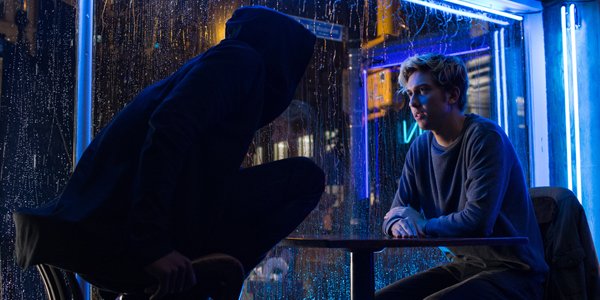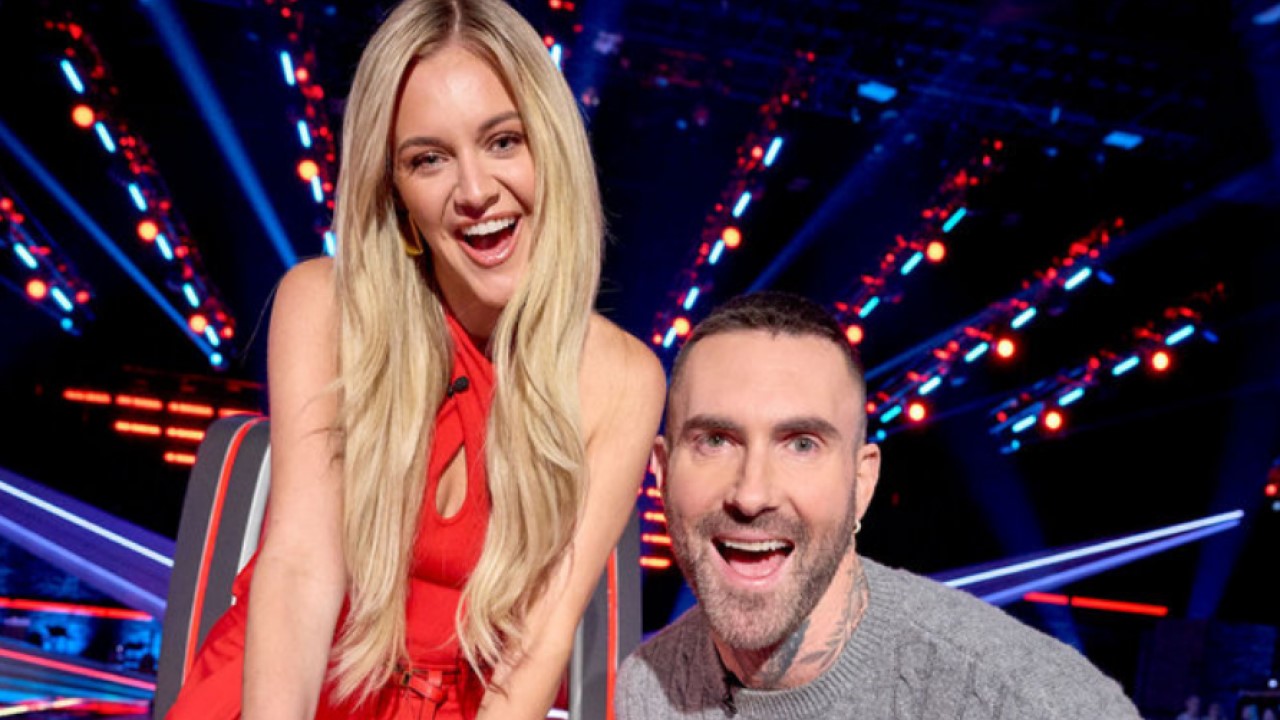Adapting the hit manga series by Tsugumi Ohba and Takeshi Obata, Death Note delivers a genre mashup that lovingly celebrates its source material while also serving as fertile ground for Adam Wingard (You're Next, The Guest) to develop his own kooky cool mashup of dark fantasy, super powers, gory violence other weirdo thrills.
Death Note begins with a pretty simple premise: A death god, Ryuk (Willem Dafoe), has existed throughout history. His modus operandi sees him choosing an individual to carry the "Death Note," a leather-bound journal. In it, his new associate is encouraged to write a name and a means of expiration. Whatever is written in the book will soon become a gruesome reality.
In present day Seattle, the Death Note (and Ryuk) appear before Nat Wolff's unpopular high schooler Light Turner. Convinced by Ryuk to test the book on a particularly unsavory individual, Turner (and soon his new confidant and love interest, Margaret Qualley's Mia Sutton) is forced to balance the dark nature of the book's abilities against the potential to effect some positive change in the world.
Part of what makes Death Note something unique is the speed at which at the simple set up explodes into a clever, much more complicated narrative. Shea Whigham plays Light's father, a police officer who is investigating the mysterious murders. While it takes a little bit to bring him into the plot, Lakeith Stansfield soon emerges as the film's MVP, playing an intensely focused international detective called L (if you don't his full name, it can't go in the book). The Atlanta and Short Term 12 star brings so much oddball energy to the character that he helps blur an important line about who it is that's really the hero of the story.
While Lakeith Stanfield ending up stealing the show, Nat Wolff and Margaret Qualley deliver impressive performances themselves, actually playing up the unlikability of both of their characters. After all, a big part of Death Note is about how we look at Light and Mia and judge the decisions they make with the book. Are they heroes by any definition? Are they really even trying to be? What role we do have in their actions as an audience? Are we actually rooting for these protagonists or do we just want to see more people die and listen to Willem Dafoe cackle in delight?
Willem Dafoe, naturally, makes for a pretty perfect big bad and it will be interesting to see how Ryuk might return in potential sequels. There have already been five Death Note films in Japan and the premise certainly leaves room for expansion. In fact, one of the places where the film fails is that there are 100 various rules also in written inside the Death Note that, at times, can serve as loopholes to escape tricky situations. While that's fantastic franchise fuel, it does adversely affect this film. Because there's no time to go through all the rules, there's the constant potential for a brand new rule to be revealed as a deus ex machina. To his credit, Adam Wingard is very careful with the exposition and the film never engages in that kind of storytelling cheat. The fact that it could at any time, though, hurts the flow of the narrative a little bit. Then again, there are probably Death Note fans out there who can quote every rule of the journal verbatim. They're probably having a much better time relating to Light's every increasing troubles.
While the initial CW aesthetic of Death Note may immediately deter some, Adam Wingard is clearly having a great time striking the film's precise tone. Imagine Robert Altman's Popeye by way of David Fincher's Se7en or Rian Johnson's Brick as a Final Destination sequel and you'll get a sense for Death Note's darkly comic sensibilities. What's more, there's a science fiction level of precision to the story's larger than life elements that, combined with the film's moments of realistic, cringe inducing gore, perfectly offsets the hyper-real characters.
Death Note is certainly not for everyone, but those that love it are going to love it forever. Like most of Adam Wingard's films to date, Death Note is guaranteed, at the very least, to live on as cult classic. Don't be too surprised, though, if this is just the first film in a Netflix franchise that continues to tap into the limitless, tantalizing potential of what the world of Death Note has to offer.











